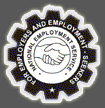- Skip to main content
- Skip to navigation
- Screen Reader Access
- Text Size
- Select Theme Default Theme Yellow Theme Pink Theme Blue Theme
- हिंदी में
- Home
- Career Counseling
- A Journey from Interview to selection
A Journey from Interview to selection
A JOURNEY FROM INTERVIEW TO SELECTION
A good interview is all about preparation. Here we shall talk about how to make it happen.
The Prerequisites
The biggest failure factor is in the style and content of your resume. After making sure that it’s properly worded, rightly formatted and free of grammatical errors, relax and think of the interviewer as just another person. Probably, she/he is anxious as you.
Prepare yourself
Four points to keep in mind: Do your homework: research different types of interviews; know what to expect; practice,
practice and practice.
The homework
Have basic info about the company. To do otherwise, shows culpable carelessness and low commitment to the job.
Types of Interviews
Telephonic
Treat them as a one-to-one because your speech and modulation will reflect the way you feel. Ask for a fixed time
slot when the interviewer can call you. Keep your voice steady and coherent.
Preliminary Interview
This is often a screening process, so do not take it too seriously. However, your selection does depend on the outcome
of this interview.
Panel Interview
Be extra careful of your body language and eye contact as each member on the panel is observing you.
Sequential Interview
This is scheduled when the person has to report to several people at the same time. Be careful, as each member is your prospective boss.
Meal time interview
Conducted in an informal set-up, this calls for some dinner diplomacy. Be very particular about what you order. Don’t
order liquor even if the interviewer does so for herself.
Skill-based Interview
An actor might be asked to do a script reading or a sales person may be requested to demonstrate her sales pitch. This
could be a God-sent opportunity to showcase what you have got. If you need equipment, let them know in advance. Be
100% clear about their expectations.
Tricky questions
These could be posers such as “Why are you leaving your present job? Known as disqualifiers, these questions are meant to vomit things you do not want to divulge. It is so easy to goof up on questions like “How do you see yourself five years
from now?. To answer it with “This job would be a stepping stone to something better,” is to court trouble. Say “I am
interested in developing my skills and the direction this company is taking would allow me to do so over the next five
years.” Another disqualilfier could be “Tell me something about yourself.” In all such cases, the intention is to make you
nervous and see how you handle such a situation. They may even tease you with, “Tell us about the time you made a
big mistake.” You could answer this by turning the question on its head and sending out a positive message. If you are
asked “What is your boss’s biggest flaw”, you could say in defence, “Well, I share a good relationship with her, but I
recognize that I need to move on and share more responsibility.”
Remember no matter what the question is, a good answer should always be complete, to the point and highlight a part of
yourself.
The D-day
If the interviewer is dressed casually and you formally, it may not reflect negatively on you, but if she is dressed formal
and you are in your casuals, it can surely boomerang. The best way is to ensure that what you are wearing is clean,
wrinkle-free, fitting, and sits nice on you.
Logistics
Know the interview venue to save yourself the embarrassment of arriving late. Yet, if you are late, apologize but do
not explain. Do not be too early either. Carry several copies of your resume for every member of the panel. Give at
least 3 work references.
Interview Actualization
A candidate is judged on the following nine dimensions:
- Educational background; And how it relates to the job.
- Work experience: Be specific about your past job/s, talk about projects, accolades won.
- Oral communication: Do not employ slangs or pepper your speech with “like, “I mean”, “You know what I mean”.
- Impact: Pick the mood of the office while waiting for your turn. Try to take in the work environment. Make sure your demeanor fits with the genre.
- Motivation and commitment: Offer suggestions to show that your addition would make a difference.
- Initiative: Talk about specific instances from your past to show you can be pro-active.
- Conflict resolution: If you are asked, “What would you do if you have to fire your relative, neighbor or your best friend?” the best answer would be “It is always difficult to fire people, but you have to act in the best interest of the company”.
- Interest: To show that you are a well rounded person, talk about your hobbies and outdoor activities.
- Work standards: Employers look for people who have their personal goals and seek personal excellence. Show indirectly that you have these internal standards in place.
Finally do not forget that you are there for a purpose. Even if the interviewer wanders off, you stay focused. Keep the conversation alive and kicking. Try to figure out her body language and adapt yourself to them. Make her feel appreciated by being an active listener and asking questions.
Salary
Be clear about your market rate. If the offer meets your expectation fine, otherwise, you might have to negotiate. While quoting salary, do not forget to take into account the whole package: commission, bonuses, health benefits, etc.
Handling the Offer
Find out everything about the job; what is entails; salary; whom do you need to report to; how many people would be working under you, etc. Give a time frame within which you’d let them know your decision.
EMI DATABASE
Search Jobs
External Links
Photo Gallery
Hit Counter 0003104106 Since: 05-02-2011







